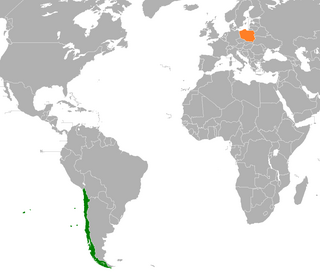
Leszek Cezary Miller is a Polish politician. He has served as a Member of the European Parliament (MEP) since July 2019.

The Polish United Workers' Party, commonly abbreviated to PZPR, was the communist party which ruled the Polish People's Republic as a one-party state from 1948 to 1989. The PZPR had led two other legally permitted subordinate minor parties together as the Front of National Unity and later Patriotic Movement for National Rebirth. Ideologically, it was based on the theories of Marxism-Leninism, with a strong emphasis on left-wing nationalism. The Polish United Workers' Party had total control over public institutions in the country as well as the Polish People's Army, the UB and SB security agencies, the Citizens' Militia (MO) police force and the media.

From 1989 through 1991, Poland engaged in a democratic transition which put an end to the Polish People's Republic and led to the foundation of a democratic government, known as the Third Polish Republic, following the First and Second Polish Republic. After ten years of democratic consolidation, Poland joined NATO in 1999 and the European Union on 1 May 2004.

The "Weimar Triangle" is a regional alliance of France, Germany, and Poland created in 1991 in the German city of Weimar. The group is intended to promote co-operation between the three countries in cross-border and European issues.

Marek Marian Belka is a Polish professor of economics and politician who has served as Prime Minister of Poland and Finance Minister of Poland in two governments. He is a former Director of the International Monetary Fund's (IMF) European Department and former Head of Narodowy Bank Polski. He has served as a Member of the European Parliament (MEP) since July 2019.

CSL Limited is an Australian multinational specialty biotechnology company that researches, develops, manufactures, and markets products to treat and prevent serious human medical conditions. CSL's product areas include blood plasma derivatives, vaccines, antivenom, and cell culture reagents used in various medical and genetic research and manufacturing applications. The company was established in 1916 as Commonwealth Serum Laboratories and was wholly owned by the Australian federal government until its privatisation in 1994.

Sandomierz Voivodeship was a unit of administration and local government in Poland from the 14th century to the partitions of Poland in 1772–1795. It was part of the Lesser Poland region. Originally Sandomierz Voivodeship also covered the area around Lublin, but in 1474 its three eastern counties were organized into Lublin Voivodeship. In the 16th century, it had 374 parishes, 100 towns and 2586 villages. The voivodeship was based on the Sandomerz ziemia, which earlier was the Duchy of Sandomierz. The Duchy of Sandomierz was created in 1138 by King Bolesław III Wrymouth, who in his testament divided Poland into five principalities. One of them, with the capital at Sandomierz, was assigned to Krzywousty's son, Henry of Sandomierz. Later on, with southern part of the Seniorate Province, the Duchy of Sandomierz created Lesser Poland, divided into Kraków and Sandomierz Voivodeships.

PZU, also known as Powszechny Zakład Ubezpieczeń Spółka Akcyjna, or PZU SA is a publicly traded insurance company, a component of the WIG30 stock market index and Poland's biggest and oldest insurance company. PZU is headquartered in Warsaw and is the largest financial institution in Poland. It is also the largest insurance company in Central and Eastern Europe.

Lithuanian–Polish Peace Force Battalion or LITPOLBAT was a Lithuanian–Polish peacekeeping battalion, formed in 1997 and disbanded in 2007 as one of the examples of military cooperation between Lithuania and Poland, now both members of NATO. Soldiers of the battalion served in various peacekeeping missions of the United Nations, NATO and the Organization for Security and Co-operation in Europe. Soldiers of LITPOLBAT have been deployed in Kosovo, Syria, Lebanon and Iraq.
Grifols, S.A. is a Spanish multinational pharmaceutical and chemical manufacturer. Principally a producer of blood plasma-based products, a field in which it is the European leader and largest worldwide, the company also supplies devices, instruments, and reagents for clinical testing laboratories.

Poland–Uruguay relations are foreign relations between Poland and Uruguay. Neither country has a resident ambassador. Both nations are members of the United Nations.

Foreign relations exist between Azerbaijan and Poland. The embassy of Poland opened in Azerbaijan on August 23, 2001, and the Azerbaijani Embassy in Poland on August 30, 2004. Both countries are full members of the Council of Europe and the Organization for Security and Co-operation in Europe (OSCE).
The Bio Products Laboratory (BPL) is a company involved in the manufacture of human blood plasma products, located in Elstree in the United Kingdom. It is run as a commercial business and supplies plasma derived products to the National Health Service in the UK as well as to markets in over 45 countries.

Mexico–Poland relations are the bilateral relations between the United Mexican States and the Republic of Poland. Both nations are members of the Organisation for Economic Co-operation and Development and the United Nations.

Diplomatic relations between Brazil and Poland were first established in 1920. Over 800,000 Brazilians are of Polish descent making Brazil the second country with the largest Polish community abroad. Both nations are members of the United Nations.

Diplomatic relations exist between Australia and Poland. Over 170,000 Australian citizens are of Polish descent. Both nations are members of the Australia Group and the Organisation for Economic Co-operation and Development.

Kazakhstan–Poland relations refer to bilateral relations between Kazakhstan and Poland. Kazakhstan has an embassy in Warsaw whilst Poland has an embassy in Astana. Both countries are members of the Organization for Security and Co-operation in Europe.

Chile and Poland maintain diplomatic relations. Both nations are members of the OECD.

Amber Gold was a Polish financial institution founded on 27 January 2009 by Marcin Plichta and liquidated on 20 September 2012. It was a pyramid scheme. In 2014, the District Prosecutor's Office in Łódź estimated the losses caused by its illicit activities at almost PLN 851 million.
















